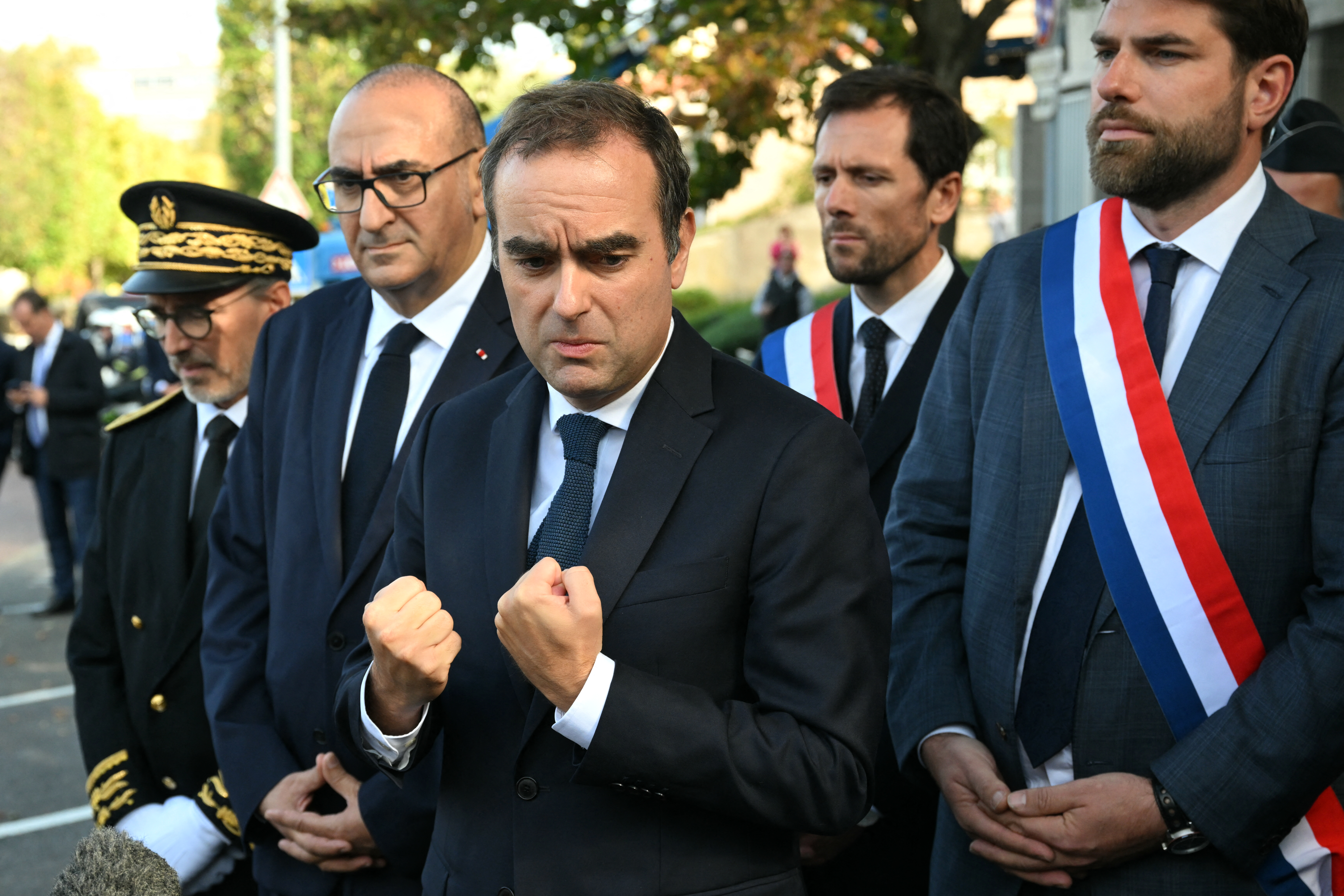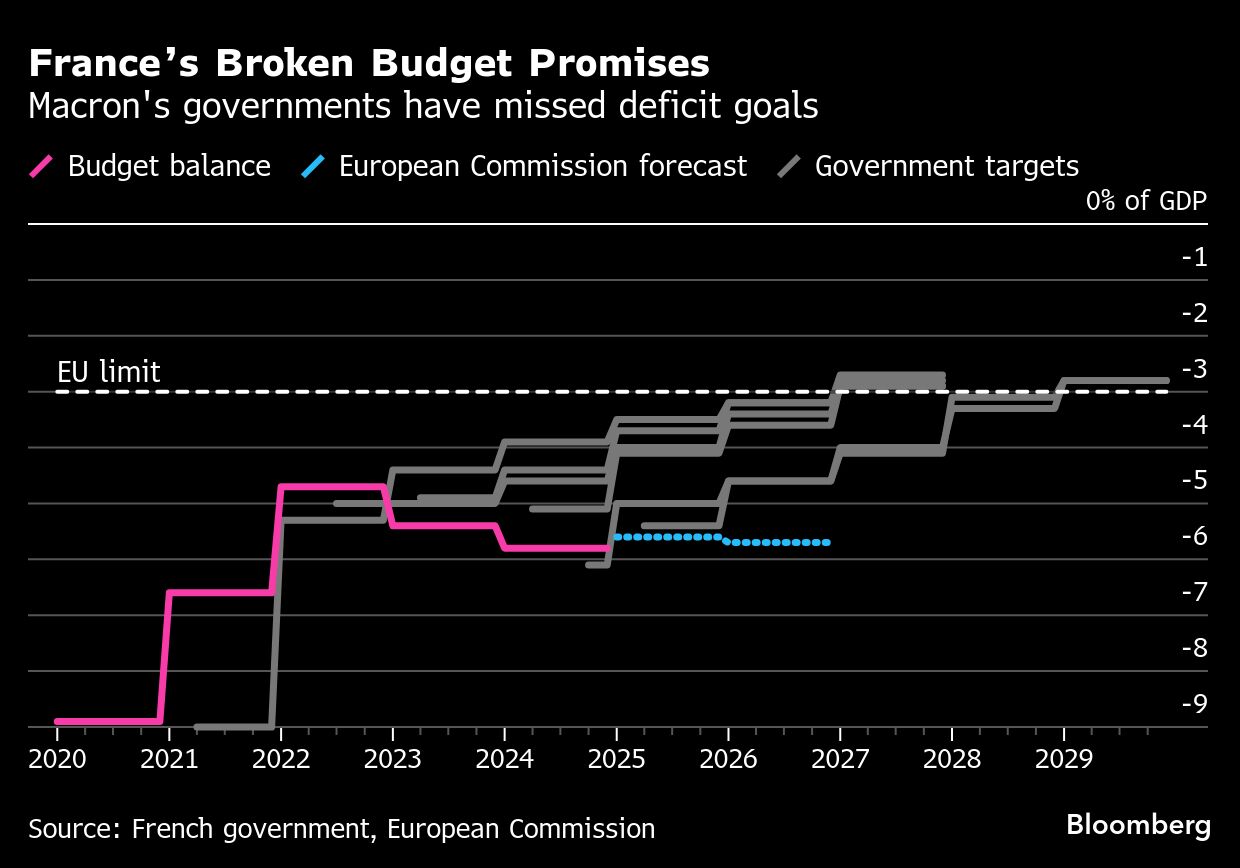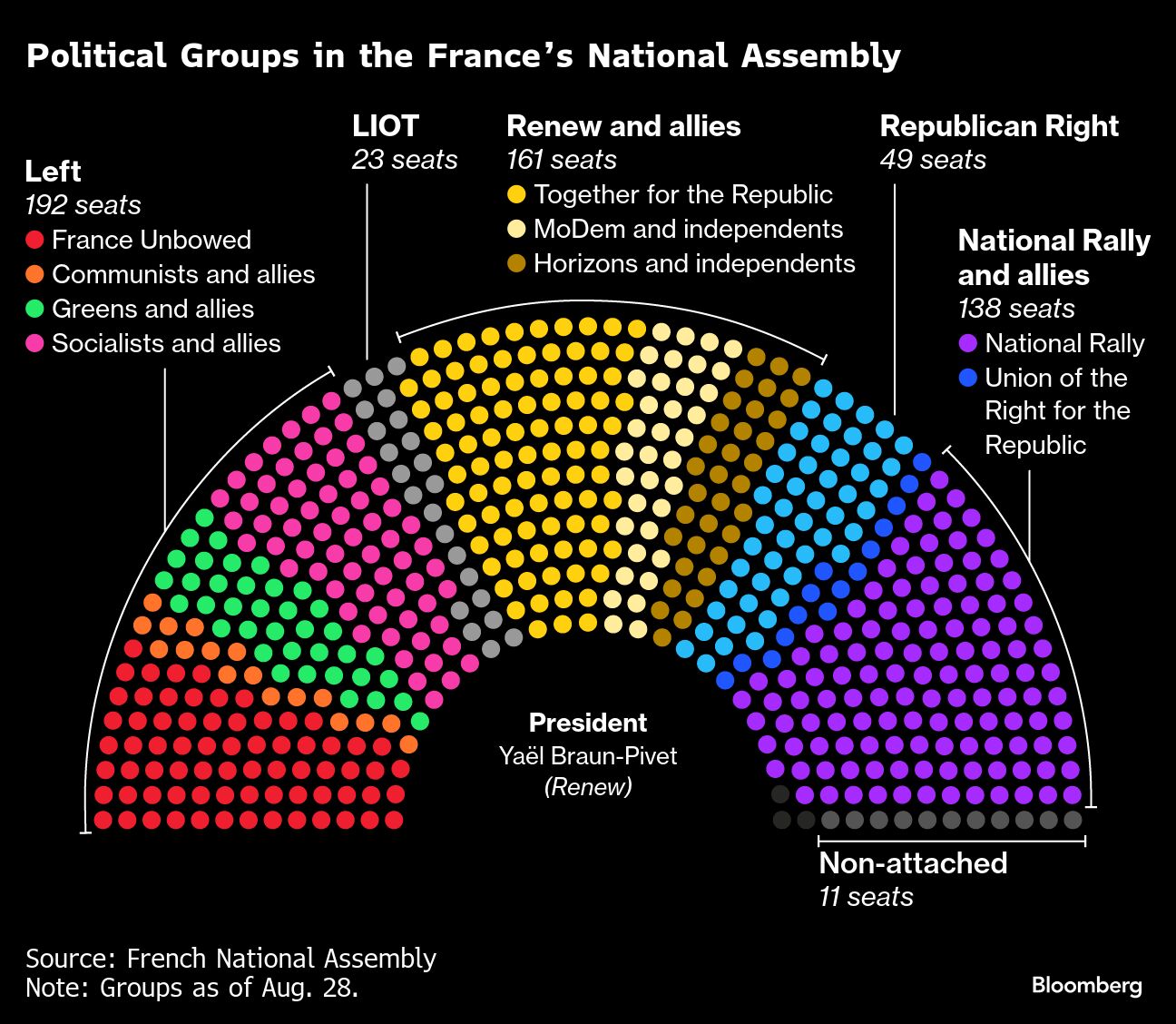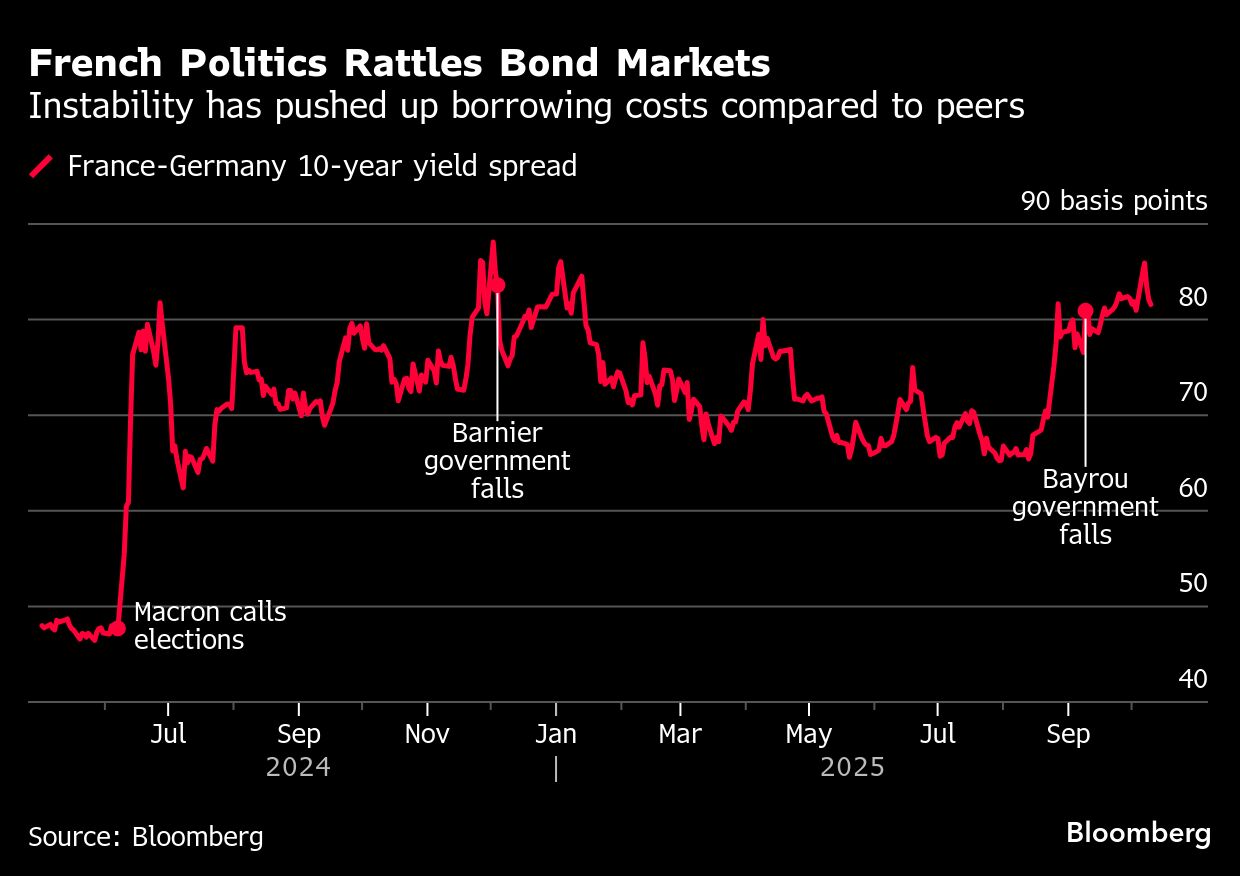
Sébastien Lecornu, who returned as France’s prime minister on Friday, is racing to form a government, betting on policy concessions and lawmakers’ fear of snap elections as he prepares to file a budget.
With both the far right and the far left vowing to topple him, Lecornu needs at least tacit support from parties ranging from the center-right Republicans to the center-left Socialists. Both groups signaled they might be willing to abstain on a confidence motion, depending on his policy choices.
“I have no other ambition than to get out of this moment that is objectively very painful for everyone,” Lecornu told reporters while touring a police station south of Paris on Saturday.
“Either the political forces help me and we work together to make it happen, or they don’t. The question is how we ensure that by December 31, there’s a budget,” he said.
Since President Emmanuel Macron’s failed snap election gamble last year weakened his centrist bloc and splintered the National Assembly, successive cabinets have struggled to govern. The deadlock has threatened efforts to curb the euro area’s largest budget deficit.
Lecornu’s first turn as prime minister ended abruptly on Monday when he resigned just hours after his cabinet was announced, blaming the intransigence of the political groups in the National Assembly.
Lecornu then held negotiations with political parties, concluding that an absolute majority of parliamentarians want to avoid an early election and saying he saw possibilities for compromise. Macron renominated Lecornu as premier late Friday.
In an interview with La Tribune Dimanche published Saturday, Lecornu said his ministerial team will be unveiled on Monday or Tuesday and he’s working on a policy statement to be delivered on Tuesday or Wednesday.
“There will be a moment of truth,” he said, warning of the National Assembly’s dissolution if he falls.
ALSO READ: France's Macron pressed to end political 'mess'
The premier must present a 2026 budget on Monday in order to get the legislation adopted by the end of the year through the normal process. Otherwise lawmakers may need to pass an emergency bill to keep the government funded.
The challenge is a lower house split among hostile blocs, with parties focused on positioning for the 2027 presidential election rather than compromising. Lecornu addressed that tension Friday, saying that anyone joining his government must “disconnect from ambitions for the 2027 presidential election.”
Failure to form a cabinet and pass a budget would mean that Macron would either have to call a parliamentary election, pick yet another prime minister or resign — something he’s previously rejected.

Even so, early signs appear to offer Lecornu at least a narrow path to survival. The Socialist Party outlined tough conditions under which it might withhold censure, while the Republicans appeared likely to be willing to abstain in a no-confidence vote even if they may not be among cabinet members.
“If it’s not possible to amend the budget, if all the issues are not on the table, of course we will have no other choice but to censure,” Socialist leader Olivier Faure said before Lecornu’s appointment . “We don’t want chaos, we are not looking for dissolution whatever the cost, but we are not scared of it either.”
Pierre Jouvet, the Socialist Party’s secretary general, largely echoed Faure’s position on Saturday. “Either he changes course and immediately implements emergency measures to boost the purchasing power of the French people and suspends immediately the pension reform, or else the Socialists will censure him,” he told BFM TV.
Carte blanche
At a meeting of Republican lawmakers on Saturday, party leader Bruno Retailleau said he opposed joining Lecornu’s next government, Agence France-Presse reported, citing participants it didn’t name. However, a wide majority of National Assembly members favored supporting Lecornu from outside the government, AFP said.
Lecornu provided at least some overtures to both groups on Saturday. He praised Retailleau for his job as interior minister and said he respected the decision not to join the next government
Asked if he was ready to suspend immediately and completely the changes to France’s pension system from a 2023 law, Lecornu said “all debates are possible provided that they are realistic, including regarding budgetary questions.”

The premier also needs to keep the support of what remains of a centrist bloc given the far left and Marine Le Pen’s far right have said they will seek to topple any cabinet that emerges to precipitate elections.
Jordan Bardella, the leader of Le Pen’s far-right National Rally, wrote on social media after the announcement that reappointing Lecornu is a “bad joke” and a “humiliation” for the French people. “The National Rally will of course immediately censure this team without any future, whose sole raison d’être is the fear of dissolution, that is, of the people.”
With no majority in parliament for the last year, ministers have struggled to deal with budget setbacks. The cocktail of political and fiscal risks has spooked investors, triggering selloffs in French assets and driving up borrowing costs. The spread between the 10-year yield of French and German bonds — a key gauge of risk — has risen to more than 80 basis points from as low as 65 in August and 43 before Macron called elections in 2024.

Lecornu earlier warned that failure to adopt a budget would push the deficit to around 6 percent of economic output in 2026, from an expected 5.4 percent this year.
For the budget bill, the premier must compromise with demands for less belt-tightening from the lawmakers he depends on to remain in power. Socialists voted to topple former premier Francois Bayrou over his plan to narrow the deficit to 4.6 percent of economic output next year, while Lecornu has warned France’s credibility with markets is at stake and the target must not be wider than 5 percent.
The prime minister must also reckon with Socialist demands to impose a wealth tax and take apart Macron’s 2023 pension law that raised the minimum retirement age, positions opposed by the Republicans.


